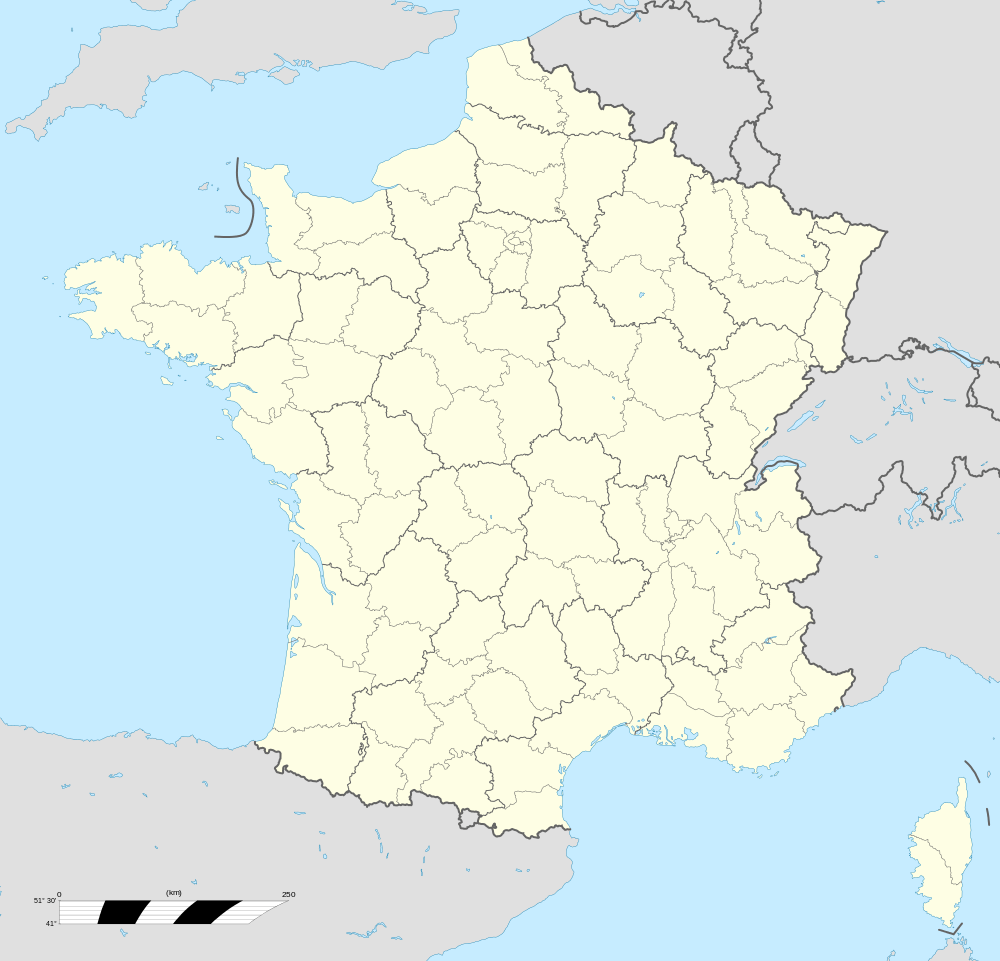Plombières-les-Bains
| Plombières-les-Bains | |
|---|---|
 | |
 Plombières-les-Bains | |
|
Location within Lorraine region  Plombières-les-Bains | |
| Coordinates: 47°58′02″N 6°27′50″E / 47.9672°N 6.4639°ECoordinates: 47°58′02″N 6°27′50″E / 47.9672°N 6.4639°E | |
| Country | France |
| Region | Lorraine |
| Department | Vosges |
| Arrondissement | Épinal |
| Canton | Plombières-les-Bains |
| Intercommunality | Association of the Three Rivers communes |
| Government | |
| • Mayor (2008–2014) | Frédéric Dubouis |
| Area1 | 27.2 km2 (10.5 sq mi) |
| Population (2006)2 | 2,004 |
| • Density | 74/km2 (190/sq mi) |
| INSEE/Postal code | 88351 / 88370 |
| Elevation | 335–576 m (1,099–1,890 ft) |
|
1 French Land Register data, which excludes lakes, ponds, glaciers > 1 km² (0.386 sq mi or 247 acres) and river estuaries. 2 Population without double counting: residents of multiple communes (e.g., students and military personnel) only counted once. | |
Plombières-les-Bains is a commune in the Vosges department in Lorraine in eastern France. It is the capital of the Canton of Plombières-les-Bains.
Les bains refers to the hot springs in the area, whose properties were first discovered by the Romans. In succeeding centuries, its baths were visited by Montaigne, Voltaire, the Dukes of Guise, the Dukes of Lorraine, Beaumarchais, Napoleon Bonaparte, Joséphine de Beauharnais, Napoléon III, Berlioz, Lamartine and Alfred de Musset.
Treaty of Plombières
The "Pavilion of the Princes" at Plombières, known in less interesting times as the administrative offices of the thermal station, achieved retrospective fame as the meeting place on 12 July 1858 between Napoleon III and Camillo Benso, conte di Cavour, who secretly negotiated the “Treaty of Plombières.” This accord granted French aid to the cause of Piedmont-Sardinia against the Austrian Empire in return for the territories of Savoy and Nice, which thereafter became French territory.
Plombir ice cream
In Russia, the highest of the state standard quality categories of ice cream, containing at least 12% butterfat, is known as "plombir" (пломбир), a slight distortion of the pronunciation of "Plombières" in Russian. According to Dmitry Ushakov's Explanatory Dictionary of the Russian Language and Max Vasmer's authoritative "Etymological dictionary of the Russian language", plombir is named after Plombières, whose name has been associated with extravagant frozen desserts since the late eighteenth century.
See also
External links
| Wikimedia Commons has media related to Plombières-les-Bains. |
- (French) Office du tourisme des Vosges méridionales
- (French) Official site
- (French) Association "Le Marché de Noël"
- (French) Compagnie Thermale de Plombières-les-Bains
- (French) Plombières-les-Bains sur le site de l'Institut géographique national
- (French) Plombières-les-Bains sur le site du Quid
- (French) Localisation de Plombières-les-Bains sur une carte de France et communes limitrophes
- (French) Plan de Plombières-les-Bains sur Mapquest
